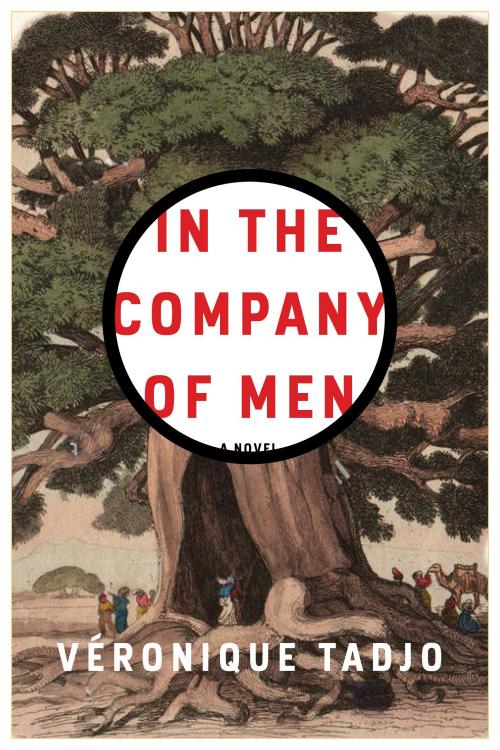JANUARY
 The Dangers of Smoking in Bed by Mariana Enriquez, translated from the Spanish by Megan McDowell (Hogarth, January 12).
The Dangers of Smoking in Bed by Mariana Enriquez, translated from the Spanish by Megan McDowell (Hogarth, January 12).
Mariana Enriquez has been critically lauded for her unconventional and sociopolitical stories of the macabre. Populated by unruly teenagers, crooked witches, homeless ghosts, and hungry women, they walk the uneasy line between urban realism and horror. The stories in her new collection are as terrifying as they are socially conscious, and press into being the unspoken—fetish, illness, the female body, the darkness of human history—with bracing urgency. A woman is sexually obsessed with the human heart; a lost, rotting baby crawls out of a backyard and into a bedroom; a pair of teenage girls can’t let go of their idol; an entire neighborhood is cursed to death when it fails to respond correctly to a moral dilemma.
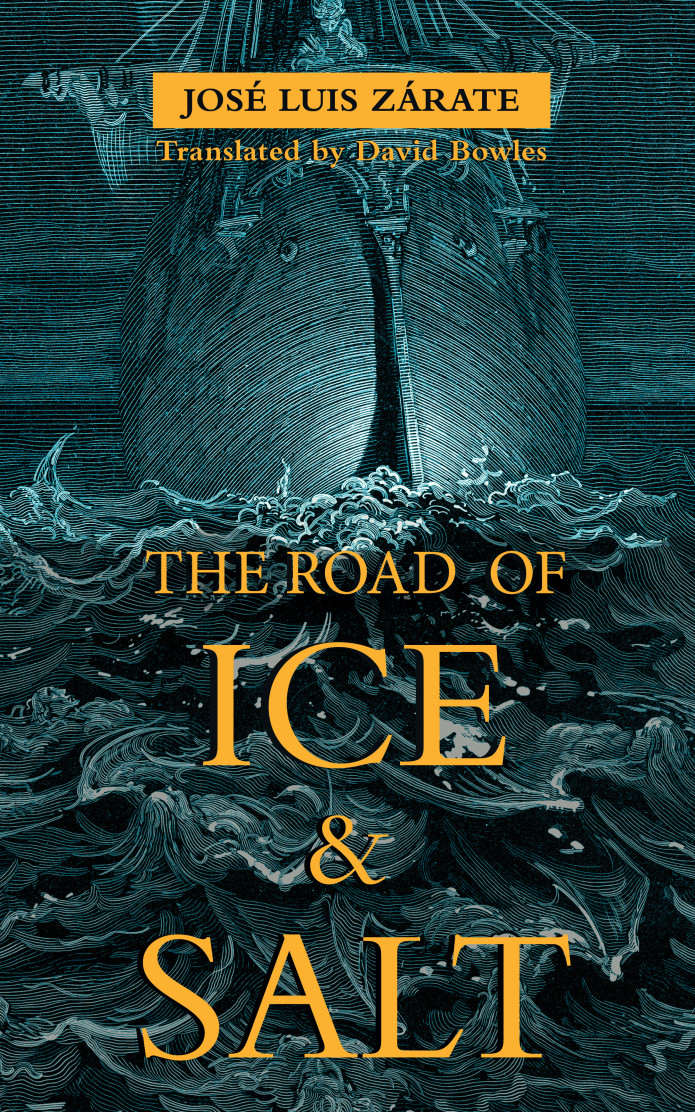 The Route of Ice and Saltby José Luis Zárate, translated from the Spanish (Mexico) by David Bowles (Innsmouth Free Press, January 19).A reimagining of Dracula’s voyage to England, filled with Gothic imagery and queer desire.
The Route of Ice and Saltby José Luis Zárate, translated from the Spanish (Mexico) by David Bowles (Innsmouth Free Press, January 19).A reimagining of Dracula’s voyage to England, filled with Gothic imagery and queer desire.
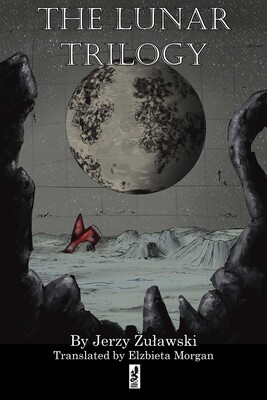 The Lunar Trilogy by Jerzy Zulawski, translated from the Polish by Elzbieta Morgan (Zmok Books, January 19).
The Lunar Trilogy by Jerzy Zulawski, translated from the Polish by Elzbieta Morgan (Zmok Books, January 19).
Trylogia Ksiezycowa (The Lunar Trilogy or The Moon Trilogy) is a trilogy of science fiction novels by the Polish writer Jerzy Zulawski, written between 1901 and 1911. The first volume, Na Srebrnym Globie (On the Silver Globe, 1903) describes, in the form of a diary, the story of a marooned expedition of Earth astronauts who find themselves stranded on the Moon and found a colony. After several generations, they lose most of their knowledge and are ruled by a religious cult. The second volume, Zwyciezca (The Conqueror or The Victor 1910), focuses upon the colonists’ anticipated Messiah, another traveler from Earth. After initial success, he fails to meet their expectations and is killed in an allegory to the death of Jesus Christ. The third volume, Stara Ziemia (The Old Earth, 1911) describes the visit of two Lunar colonists to 27th-century Earth.
FEBRUARY
Bug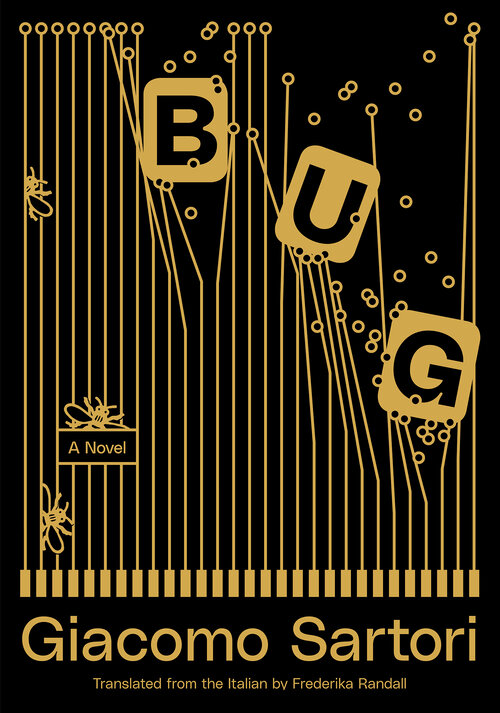 by Giacomo Sartori, translated from the Italian by Frederika Randall (Restless Books, February 2).
by Giacomo Sartori, translated from the Italian by Frederika Randall (Restless Books, February 2).
With the wicked humor and imagination that made readers fall in love with his novel I Am God, Giacomo Sartori brings us a madcap story of family dysfunction, (dis)ability, intelligent robots, bees, and a family of misfit savants living outside the bounds.
Eleven Sooty Dreams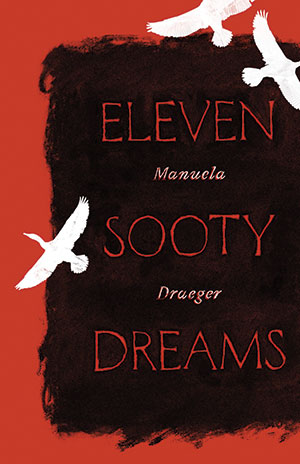 by Manuela Draeger (Antoine Volodine), translated from the French by J. T. Mahany (Open Letter, February 9).
by Manuela Draeger (Antoine Volodine), translated from the French by J. T. Mahany (Open Letter, February 9).
In Manuela Draeger’s poetic “post-exotic” novel, a group of young leftists trapped in a burning building after one year’s Bolcho Pride parade plunge back into their childhood memories, trading them with each other as their lives are engulfed in flames. They remember Granny Holgolde’s stories of the elephant Marta Ashkarot, who travels through the Bardo to find her home and be reincarnated again and again. They remember the Soviet folk singer Lyudmila Zykina and her melancholic, simple songs of unspeakable beauty. They remember the half-human birds Granny Holgolde called strange cormorants, the ones who knew how to live in fire, secrecy, and death, and as the flames grow they hope to become them.
 Rabbit Island by Elvira Navarro, translated by Christina MacSweeney (Two Lines Press, February 9)Combining the gritty surrealism of David Lynch with the explosive interior meditations of Clarice Lispector, the stories in Elvira Navarro’s Rabbit Island traverse the fickle, often terrifying terrain between madness and freedom. In the title story, a so-called “non-inventor” conducts an experiment on an island inhabited exclusively by birds and is horrified by what the results portend. “Myotragus” bears witness to a man of privilege’s understanding of the world being violently disrupted by the sight of a creature long thought extinct. Elsewhere, an unsightly “paw” grows from a writer’s earlobe; a grandmother floats silently in the corner of a room.
Rabbit Island by Elvira Navarro, translated by Christina MacSweeney (Two Lines Press, February 9)Combining the gritty surrealism of David Lynch with the explosive interior meditations of Clarice Lispector, the stories in Elvira Navarro’s Rabbit Island traverse the fickle, often terrifying terrain between madness and freedom. In the title story, a so-called “non-inventor” conducts an experiment on an island inhabited exclusively by birds and is horrified by what the results portend. “Myotragus” bears witness to a man of privilege’s understanding of the world being violently disrupted by the sight of a creature long thought extinct. Elsewhere, an unsightly “paw” grows from a writer’s earlobe; a grandmother floats silently in the corner of a room.
Tower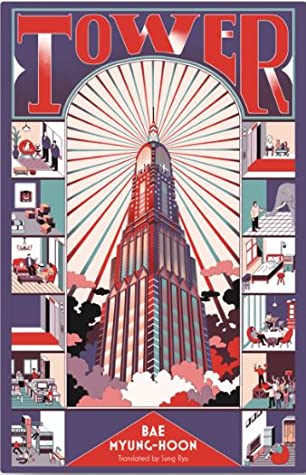 by Bae Myung-hoon, translated from the Korean by Sung Ryu (Honford Star, February 15)
by Bae Myung-hoon, translated from the Korean by Sung Ryu (Honford Star, February 15)
Tower is a series of interconnected stories set in Beanstalk, a 674-story skyscraper and sovereign nation. Each story deals with how citizens living in the hypermodern high-rise deal with various influences of power in their lives: a group of researchers have to tell their boss that a major powerbroker is a dog, a woman uses the power of the internet to rescue a downed fighter pilot abandoned by the government, and an out-of-towner finds himself in charge of training a gentle elephant to break up protests.
Drawing on real accounts of the Ebola outbreak that devastated West Africa, this poignant, timely fable reflects on both the strength and the fragility of life and humanity’s place in the world.
MARCH
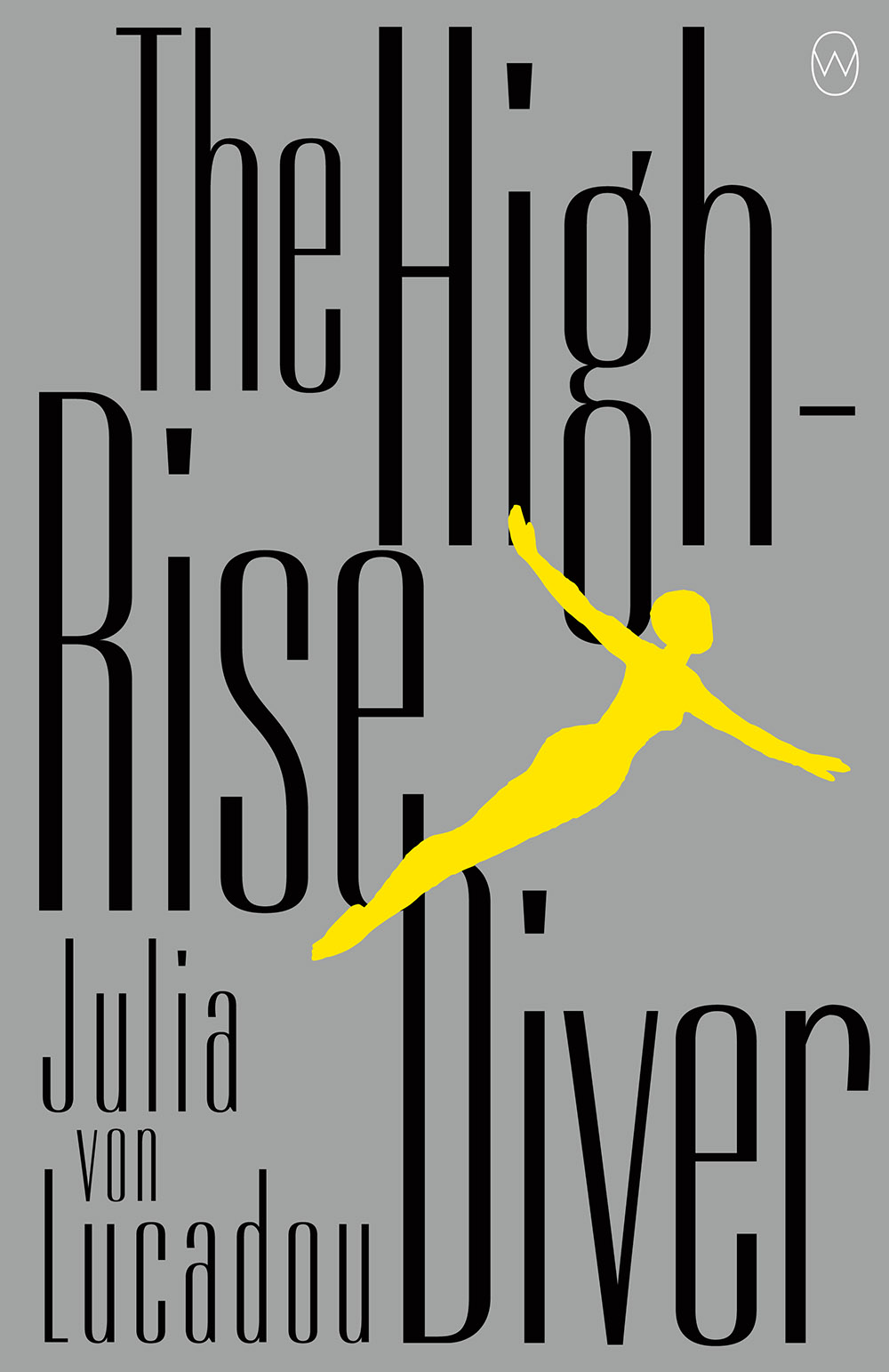 The High-Rise Diver by Julia von Lucadou, translated from the German by Sharmila Cohen (World Edition, March 2).
The High-Rise Diver by Julia von Lucadou, translated from the German by Sharmila Cohen (World Edition, March 2).
Riva is a “high-rise diver,” a top athlete with millions of fans, and a perfectly functioning human on all levels. Suddenly she rebels, breaking her contract and refusing to train. Cameras are everywhere in her world, but she doesn’t know her every move is being watched by Hitomi, the psychologist tasked with reining Riva back in. Unquestionably loyal to the system, Hitomi’s own life is at stake: should she fail to deliver, she will be banned to the “peripheries,” the filthy outskirts of society.
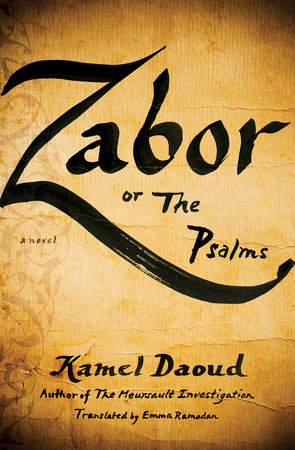 Zabor, or The Psalms by Kamel Daoud, translated from the French by Emma Ramadan (Other Press, March 2).
Zabor, or The Psalms by Kamel Daoud, translated from the French by Emma Ramadan (Other Press, March 2).
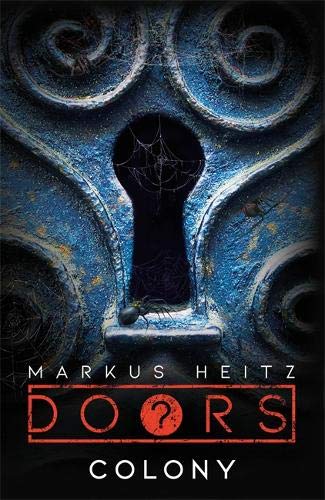 Colony (Doors #1) by Markus Heitz, translated from the German by Charlie Homewood (Jo Fletcher Books, March 4).
Colony (Doors #1) by Markus Heitz, translated from the German by Charlie Homewood (Jo Fletcher Books, March 4).
When his beloved only daughter goes missing, millionaire entrepreneur Walter van Dam calls in a team of experts – including free-climbers, a geologist, a parapsychologist, even a medium – to find her . . . for Anna-Lena has disappeared somewhere within a mysterious cave system under the old house the family abandoned years ago. But the rescuers are not the only people on her trail – and there are dangers in the underground labyrinth that no one could ever have foreseen.
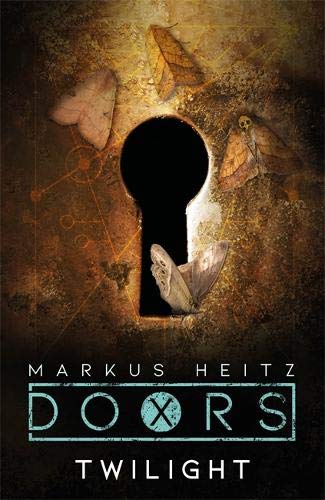 Twilight (Doors #2)by Markus Heitz, translated from the German by Charlie Homewood (Jo Fletcher Books, March 4).
Twilight (Doors #2)by Markus Heitz, translated from the German by Charlie Homewood (Jo Fletcher Books, March 4).
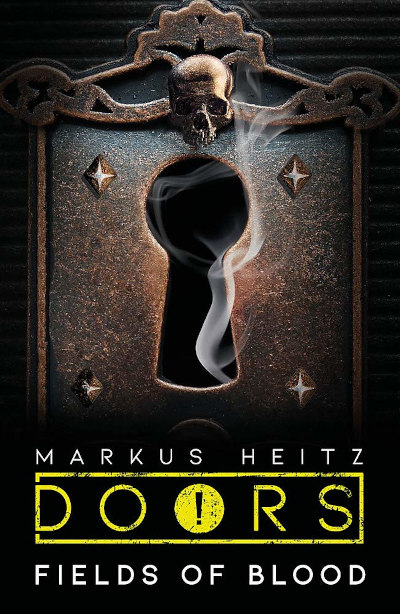
Fields of Blood (Doors #3) by Markus Heitz, translated from the German by Charlie Homewood (Jo Fletcher Books, March 4).
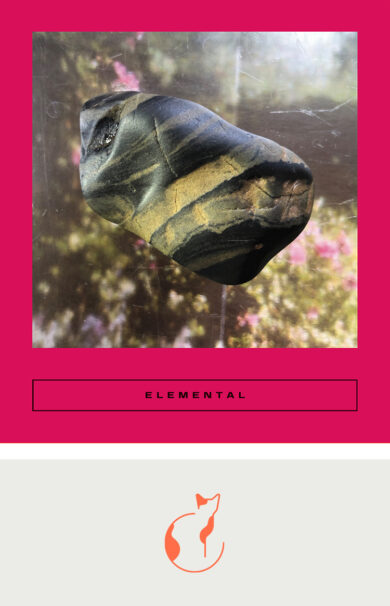 Elemental: Earth Stories, various translators (Two Lines Press, March 9)
Elemental: Earth Stories, various translators (Two Lines Press, March 9)
A family’s heirloom stones unearth a story spanning war, illness, and radioactivity. A pipeline installed to protect a town from flooding results in a howling that disturbs the townspeople. A political prisoner embarks on an epic flight toward freedom, literally blown like a kite in the wind. Is the world ours to make? Or is it the natural world that defines—even controls—us? A whirlwind of fantastic new writing from Japan, Iran, Madagascar, Iraq, Germany, and more, this latest installment of the Calico Series maps the intimate, ongoing relationship between human civilization and the environment. Featuring fiction and reportage from eight authors working in different languages, Elemental is an awesome collection that speaks of climate catastrophe, geological time, and mythology; it’s a global gathering of engaged, innovative eco-lit.
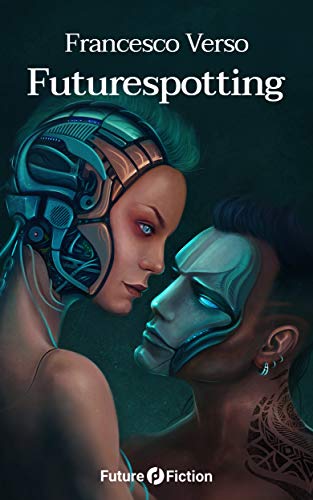 Futurespotting by Francesco Verso, translated from the Italian by Michael Colbert and Sally McCorry (Future Fiction, March 16)
Futurespotting by Francesco Verso, translated from the Italian by Michael Colbert and Sally McCorry (Future Fiction, March 16)
These are Francesco Verso’s first eleven short stories written between 2008 and 2020; inside you will find a kaleidoscope of visions of the future, ranging from augmented reality to artificial intelligence, from gamification to solarpunk, all the way to biotechnology and post-humanism.
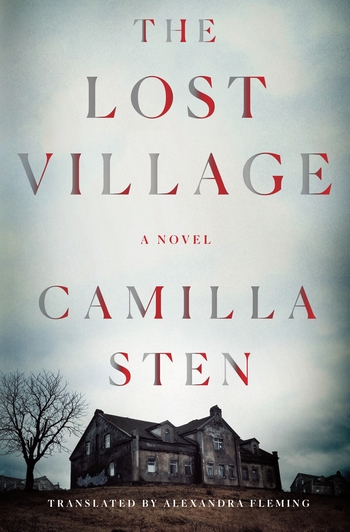 The Lost Village by Camilla Sten, translated from the Swedish by Alexandra Fleming (Minotaur Books, May 23).
The Lost Village by Camilla Sten, translated from the Swedish by Alexandra Fleming (Minotaur Books, May 23).
Documentary filmmaker Alice Lindstedt has been obsessed with the vanishing residents of the old mining town, dubbed “The Lost Village,” since she was a little girl. In 1959, her grandmother’s entire family disappeared in this mysterious tragedy, and ever since, the unanswered questions surrounding the only two people who were left—a woman stoned to death in the town center and an abandoned newborn—have plagued her. She’s gathered a small crew of friends in the remote village to make a film about what really happened.
But there will be no turning back.Not long after they’ve set up camp, mysterious things begin to happen. Equipment is destroyed. People go missing. As doubt breeds fear and their very minds begin to crack, one thing becomes startlingly clear to Alice: They are not alone. They’re looking for the truth…But what if it finds them first?
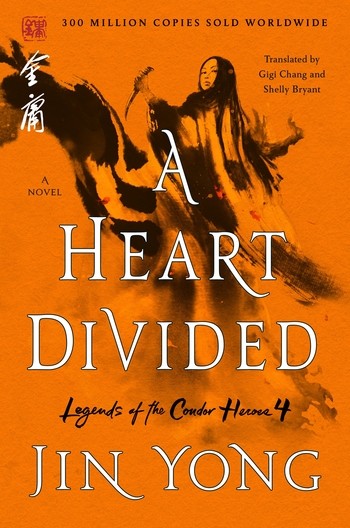 A Heart Divided (Legends of the Condor Heroes 4) by Jin Yong, translated from the Chinese by Gigi Chang and Shelly Bryant (MacLehose Press, March 25)
A Heart Divided (Legends of the Condor Heroes 4) by Jin Yong, translated from the Chinese by Gigi Chang and Shelly Bryant (MacLehose Press, March 25)
A Heart Divided is the next in the high stakes, tension-filled epic Legends of the Condor Heroes series, where kung fu is magic, kingdoms vie for power and the battle to become the ultimate kung fu master unfolds.
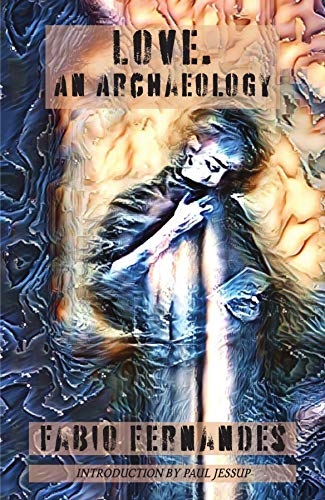 Love: An Archaeology by Fabio Fernandes, translated from the Portuguese (Brazil) by the author (Luna Press Publishing, March 26)
Love: An Archaeology by Fabio Fernandes, translated from the Portuguese (Brazil) by the author (Luna Press Publishing, March 26)
Fourteen stories, ranging from science fiction to weird, mixing future scenarios (on and off-Earth) and alternate realities, but in fact, they are essentially about one thing: love and its malcontents. A man who refuses to let death erase the memories of his loved ones; two time- travellers leaping through the aeons in a literal love-and-death relationship; a murderer in love with the ghost of his prey – and more.
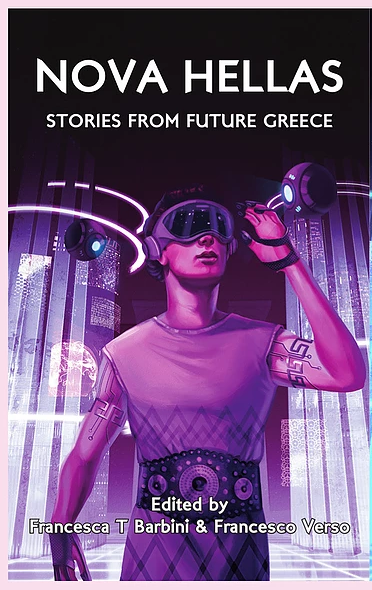 Nova Hellas: Stories From Future Greece edited by Francesca T. Barbini and Francesco Verso (Luna Press Publishing, March 30)
Nova Hellas: Stories From Future Greece edited by Francesca T. Barbini and Francesco Verso (Luna Press Publishing, March 30)
The stories in Nova Hellas take us on a dystopian, harsh journey. Yet their protagonists are resilient, cunning and resourceful. They reflect both the history of Greece itself, always surviving and rebuilding, always claiming a better tomorrow – and, perhaps, to a smaller degree, the stubbornness of Greek science fiction, which insisted on thriving in adverse circumstances and against much opposition
On the Origin of Species and Other Stories by Bo-Young Kim, translated from the Korean by Sora Kim-Russell and Joungmin Lee Comfort (Kaya Press, March 30)
by Bo-Young Kim, translated from the Korean by Sora Kim-Russell and Joungmin Lee Comfort (Kaya Press, March 30)
Straddling science fiction, fantasy and myth, the writings of award-winning author Bo-Young Kim have garnered a cult following in South Korea, where she is widely acknowledged as a pioneer and inspiration. On the Origin of Species makes available for the first time in English some of Kim’s most acclaimed stories, as well as an essay on science fiction. Her strikingly original, thought-provoking work teems with human and non-human beings, all of whom are striving to survive through evolution, whether biologically, technologically or socially. Kim’s literature of ideas offers some of the most rigorous and surprisingly poignant reflections on posthuman existence being written today.
APRIL
I’m  Waiting For You and Other Stories by Bo-Young Kim, translated from the Korean by Sophie Bowman (Harper Voyager, April 6)
Waiting For You and Other Stories by Bo-Young Kim, translated from the Korean by Sophie Bowman (Harper Voyager, April 6)
In this mind-expanding work of speculative fiction, available in English for the first time, one of South Korea’s most treasured writers explores the driving forces of humanity—love, hope, creation, destruction, and the very meaning of existence—in two pairs of thematically interconnected stories.
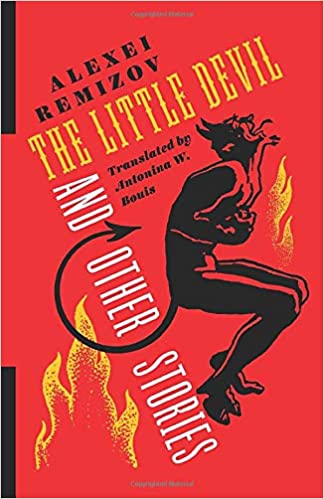 The Little Devil and Other Stories by Alexei Remizov, translated from the Russian by Antonina W. Bouis (Columbia University Press, April 13)
The Little Devil and Other Stories by Alexei Remizov, translated from the Russian by Antonina W. Bouis (Columbia University Press, April 13)
In a dilapidated and isolated old house, something peculiar seems to happen whenever the town’s bestial exterminator visits. On a seemingly bucolic country estate, the head of the household is a living corpse obsessed with other corpses. An adolescent boy who passes his days in private dream worlds experiences a sexual awakening spurred by his family’s scandalous tenant. In these and other stories, the modernist writer Alexei Remizov offers a panorama of Russian mythology, the supernatural, rural grotesques, and profound religious faith in fiery revolutionary settings.
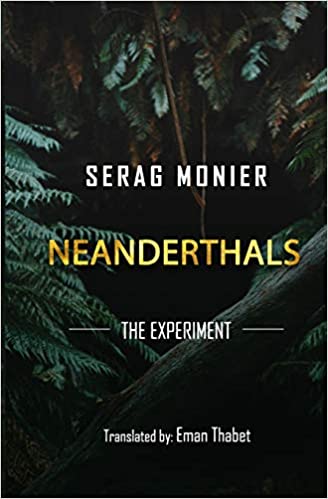 Neanderthals: the Experiment by Serag Monier, translated from the Arabic by Eman Thabet (independently published, April 13)
Neanderthals: the Experiment by Serag Monier, translated from the Arabic by Eman Thabet (independently published, April 13)
When a dream becomes all too real, a pair of strangers find themselves in parallel universes. Neither knows how nor why they’re there, but they found themselves in grave danger. Soon, the realities of their predicament come to light. They are being manipulated and used but by whom and why is yet undetermined. As the pressures mount, their deepest fears, anxieties, and strengths are exposed and weaponized against them until they’re forced to make an impossible choice. Put to the ultimate test and facing insurmountable pressure at home, they must form a bond and hope their growing feelings for each other will help them overcome every obstacle. But first, they must uncover the truth about why they’re there and reconcile with who they are behind the carefully crafted facades. Follow this transformational journey as a pair of strangers explore the value of human life, navigate unfamiliar and potentially deadly landscapes, and discover more about themselves than they ever believed possible in this strange new world.
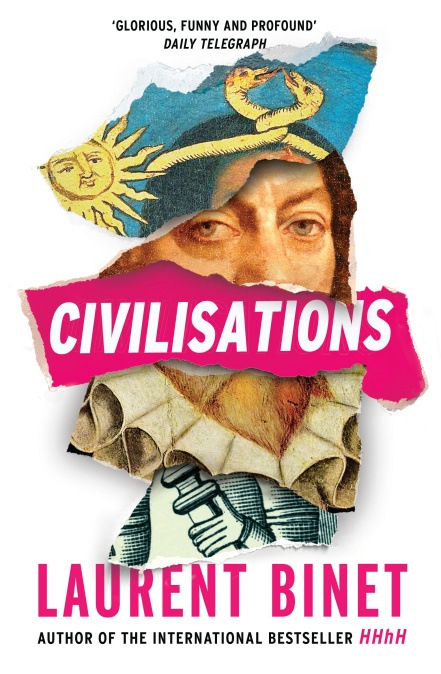 Civilisations by Laurent Binet, translated from the French by Sam Taylor (Harvill Secker, April 15)
Civilisations by Laurent Binet, translated from the French by Sam Taylor (Harvill Secker, April 15)
It’s world history. But not as we know it.
c.1000AD: Erik the Red’s daughter heads south from Greenland
1492: Columbus does not discover America
1531: the Incas invade Europe
Freydis is the leader of a band of Viking warriors who get as far as Panama. Nobody knows what became of them. Five hundred years later, Christopher Columbus is sailing for the Americas, dreaming of gold and conquest. Even when captured, his faith in his mission is unshaken.
Thirty years after that, Atahualpa, the last Inca emperor, arrives in a Europe ready for revolution. Fortunately, he has a recent guidebook to acquiring power – Machiavelli’s The Prince. So, the stage is set for a Europe ruled by Incas and, when the Aztecs arrive on the scene, for a great war that will change history forever.
 Terminal Boredom: Stories by Izumi Suzuki, translated from the Japanese by Polly Barton, Sam Bett, David Boyd, and Daniel Joseph (Verso Fiction, April 20)At turns nonchalantly hip and charmingly deranged, Suzuki’s singular slant on speculative fiction would be echoed in countless later works, from Margaret Atwood and Harumi Murakami, to Black Mirror and Ex Machina. In these darkly playful and punky stories, the fantastical elements are always earthed by the universal pettiness of strife between the sexes, and the gritty reality of life on the lower rungs, whatever planet that ladder might be on.
Terminal Boredom: Stories by Izumi Suzuki, translated from the Japanese by Polly Barton, Sam Bett, David Boyd, and Daniel Joseph (Verso Fiction, April 20)At turns nonchalantly hip and charmingly deranged, Suzuki’s singular slant on speculative fiction would be echoed in countless later works, from Margaret Atwood and Harumi Murakami, to Black Mirror and Ex Machina. In these darkly playful and punky stories, the fantastical elements are always earthed by the universal pettiness of strife between the sexes, and the gritty reality of life on the lower rungs, whatever planet that ladder might be on.
MAY
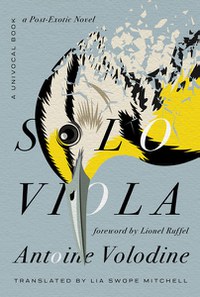 Solo Viola: A Post-Exotic Novel by Antoine Volodine, translated from the French by Lia Swope Mitchell (University of Minnesota Press, May 11).
Solo Viola: A Post-Exotic Novel by Antoine Volodine, translated from the French by Lia Swope Mitchell (University of Minnesota Press, May 11).
In one of his first forays into post-exoticism, Antoine Volodine takes the reader into a fictional world where a variety of characters collide. All are trying to survive in an absurd and hostile environment of authoritarian spectacle, at the mercy of a tyrannical buffoon, and seeking the strange counterbalance of hope in a viola player, whose stunning music might save them all.
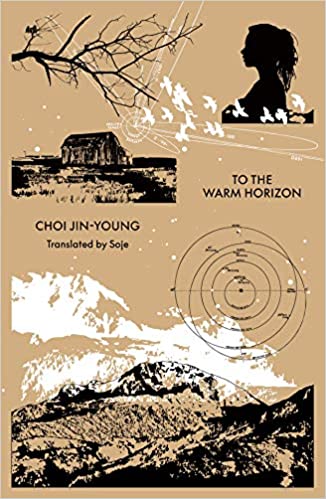 To the Warm Horizon by Choi Jin-young, translated from the Korean by Soje (Honford Star, May 15).
To the Warm Horizon by Choi Jin-young, translated from the Korean by Soje (Honford Star, May 15).
A group of Koreans are making their way across a disease-ravaged landscape—but to what end? To the Warm Horizon shows how in a post-apocalyptic world, humans will still seek purpose, kinship, and even intimacy. Focusing on two young women, Jina and Dori, who find love against all odds, Choi Jin-young creates a dystopia where people are trying to find direction after having their worlds turned upside down.
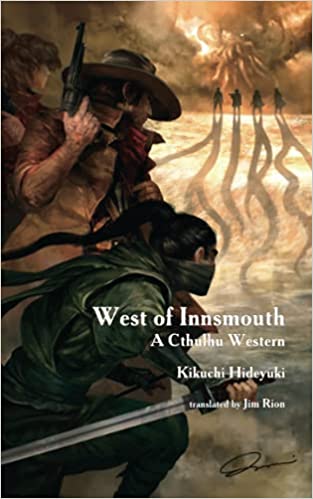 West of Innsmouth: A Cthulhu Western by Kikuchi Hideyuki, translated from the Japanese by Jim Rion (Kurodahan, May 19).
West of Innsmouth: A Cthulhu Western by Kikuchi Hideyuki, translated from the Japanese by Jim Rion (Kurodahan, May 19).
A unique mash-up blending two of America’s favorite literary genres—the western and the Cthulhu Mythos—with a dash of Japanese ninja for added zest, brought to life with the humor and bold imagination that made his Vampire Hunter D series such a success in English translation.
JUNE
The Best of World SF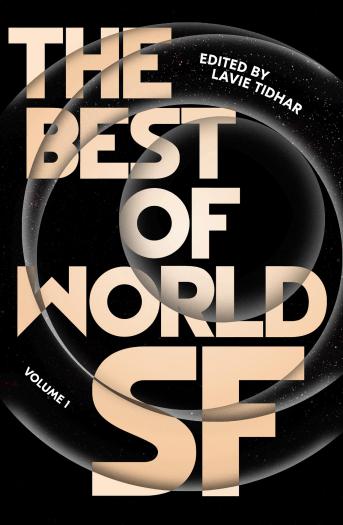 , edited by Lavie Tidhar (Head of Zeus, June 1)
, edited by Lavie Tidhar (Head of Zeus, June 1)
The Best of World SF draws together stories from across the spectrum of science fiction – expect robots, spaceships and time travel, as well as some really weird stuff – representing twenty-one countries and five continents. Lavie Tidhar has selected stories that range from never-before-seen originals to award winners; from authors at every stage of their career; and a number of translations, including a story translated from Hebrew by Tidhar himself.
Translated stories include:
“Debtless” by Chen Qiufan (trans. from Chinese by Blake Stone-Banks)
‘The Wheel of Samsara’ by Han Song (trans. from Chinese by the author)
‘Prayer’ by Taiyo Fujii (trans. from Japanese by Kamil Spychalski)
‘The Green Ship’ by Francesco Verso (trans. from Italian by Michael Colbert)
‘Dump’ by Cristina Jurado (trans. from Spanish by Steve Redwood)
‘Rue Chair’ by Gerardo Horacio Porcayo (trans. from Spanish by the author)
‘Benjamin Schneider’s Little Greys’ by Nir Yaniv (trans. from Hebrew by Lavie Tidhar)
‘The Cryptid’ by Emil H. Petersen (trans. from Icelandic by the author)
 The Membranes by Chi Ta-wei, translated from the Chinese by Ari Larissa Heinrich (Columbia University Press, June 1)
The Membranes by Chi Ta-wei, translated from the Chinese by Ari Larissa Heinrich (Columbia University Press, June 1)
“It is the late twenty-first century, and Momo is the most celebrated dermal care technician in all of T City. Humanity has migrated to domes at the bottom of the sea to escape devastating climate change. The world is dominated by powerful media conglomerates and runs on exploited cyborg labor. Momo prefers to keep to herself, and anyway she’s too busy for other relationships: her clients include some of the city’s best-known media personalities. But after meeting her estranged mother, she begins to explore her true identity, a journey that leads to questioning the bounds of gender, memory, self, and reality.”
 Robotby Adam Wisniewski-Snerg, translated from the Polish by ? (Penguin Classics, June 3).
Robotby Adam Wisniewski-Snerg, translated from the Polish by ? (Penguin Classics, June 3).
The first English-language publication of one of the greatest Polish science fiction novels of all time. Is BER-64 a human or a machine? As he navigates the corridors and locked rooms of a strange bunker, he must solve the mysteries of murderous doppelgangers, a slow-motion city on the verge of destruction, and ultimately, the all-powerful Mechanism itself…Considered to be one of the most important and original Polish science fiction novels of all time but never before translated into English, Adam Wisniewski-Snerg’s debut novel is a haunting and mind-bending masterpiece of philosophical enquiry that penetrates deep into the heart of what it means to be human.
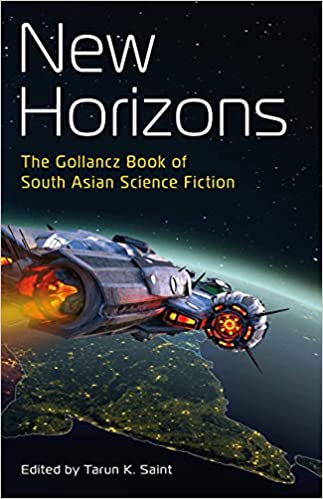 New Horizons: The Gollancz Book of South Asian Science Fiction, ed. Tarun Saint (Gollancz, June 3)
New Horizons: The Gollancz Book of South Asian Science Fiction, ed. Tarun Saint (Gollancz, June 3)
The citizens of Karachi wake up and discover the sea missing from their shores, the last Parsi on Earth must escape to other worlds when debt collectors come knocking, and a family visiting a Partition-themed park gets more entertainment than they bargained for.
These stories and others showcase the epic scope of science fiction from the South Asian subcontinent. Offering a fresh perspective on our hyper-global, often alienating and always paranoid world, NewHorizons brings together tales of masterful imagination where humanity and love may triumph yet.
 The Shadow Book of Ji Yun: The Chinese Classic of Weird True Tales, Horror Stories, and Occult Knowledge, translated from the Chinese by Yi Izzy Yu and John Yu Branscum (Empress Wu Books, June 5)
The Shadow Book of Ji Yun: The Chinese Classic of Weird True Tales, Horror Stories, and Occult Knowledge, translated from the Chinese by Yi Izzy Yu and John Yu Branscum (Empress Wu Books, June 5)
Combining insights into Chinese magic and metaphysics with tales of cannibal villages, sentient fogs, alien encounters, and fox spirits, alongside nightmarish narratives of soul swapping, haunted cities, and the “jiangshi” (the Chinese vampire), there is no literary work quite like that of Ji Yun. Designed by him to be both entertainment and an occult technology that awakens readers to new dimensions of reality, one cannot walk away from these stories unchanged. The Shadow Book of Ji Yun is a literary translation of Ji Yun’s most masterful tales.
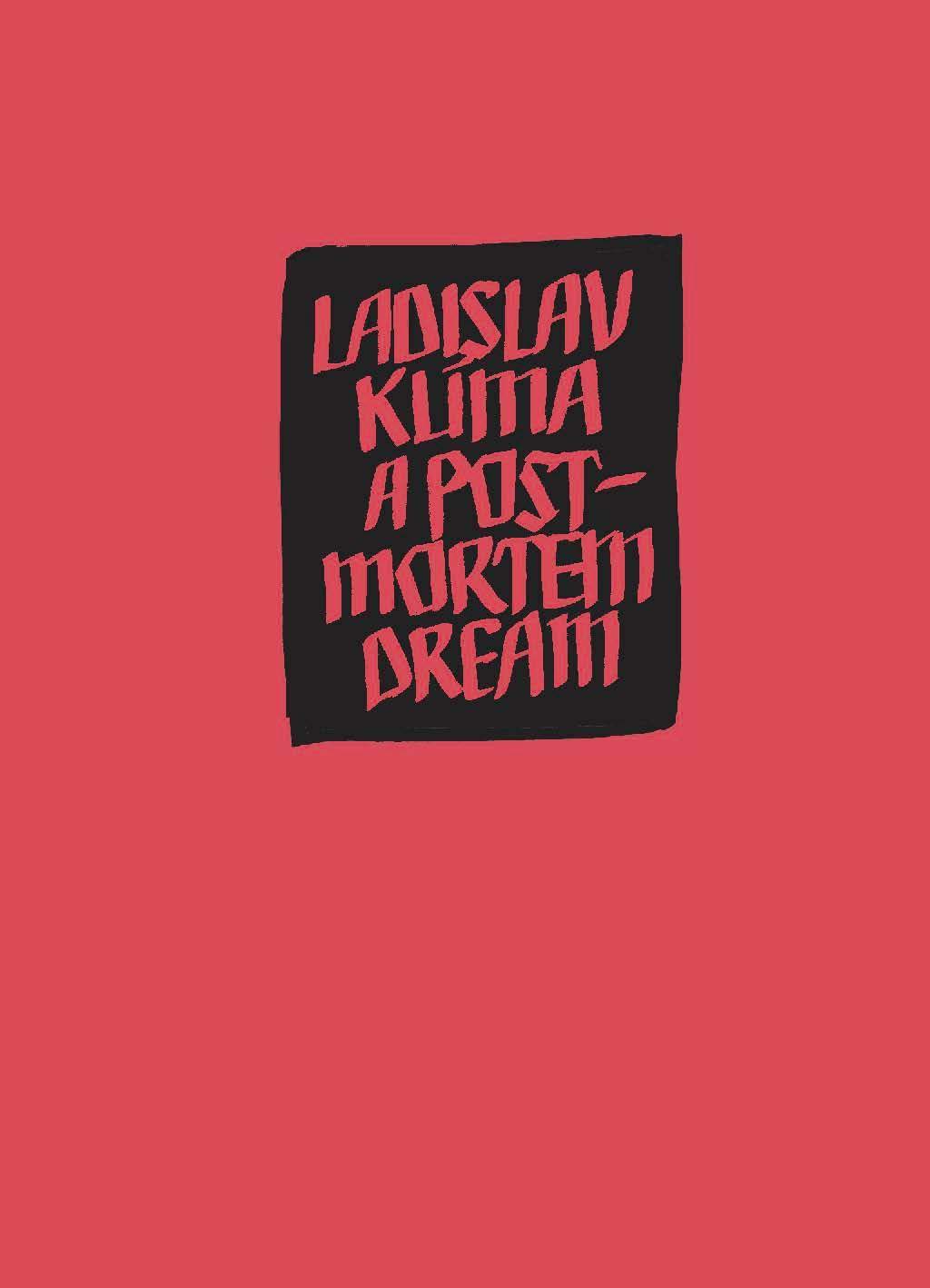 A Postmortem Dream by Ladislav Klíma, translated from the Czech by Jed Slast (Twisted Spoon Press, June 7)
A Postmortem Dream by Ladislav Klíma, translated from the Czech by Jed Slast (Twisted Spoon Press, June 7)
One of Ladislav Klíma’s most famous ghost stories, A Postmortem Dream is an unfinished novella about Matthias Lebermayer, a corpulent provincial shopkeeper who is either dead or dreaming (while passed out drunk), or maybe both, simultaneously experiencing past and future lives as himself and as someone else. As he tries to work out where the borders of reality lie, if he’s dreaming, awake, or indeed dead, he is continually haunted by a mysterious man in a shabby checkered suit who utters the strange words: “Five fields I have passed,” triggering overwhelming dread as well as dislocations in time and space. Lebermayer has no idea what the words could mean, but more clues are revealed as his life bleeds into another. With echoes of Poe and Plato’s Myth of Er, Klíma tells his tale of horror with great brio and humor.
 Slipping by Mohamed Kheir, translated from the Arabic by Robin Moger (Two Lines Press, June 8)
Slipping by Mohamed Kheir, translated from the Arabic by Robin Moger (Two Lines Press, June 8)
Under mysterious circumstances, Seif, a struggling journalist, is introduced to a source for a new story: a former exile with an encyclopedic knowledge of the country’s obscure, magical spaces. Together—as tourist and guide—they step into a world hidden in plain sight. In Alexandria, they wait as trains bear down on them at the intersection of several busy lines; they follow a set of stairs down to the edge of the Nile and cross the water on foot; and down south, they sit before a bare cave wall, a cinema of private visions. What begins as a fantastical excursion through a fractured nation quickly winds its way inward, as Seif begins to piece together the mysteries of his own past, including what happened to Alya, his girlfriend with the gift of “singing sounds.” Seif alone confronts the interconnectedness of his own traumas with Egypt’s following the Arab Spring and its hallucinatory days of revolutionary potential.
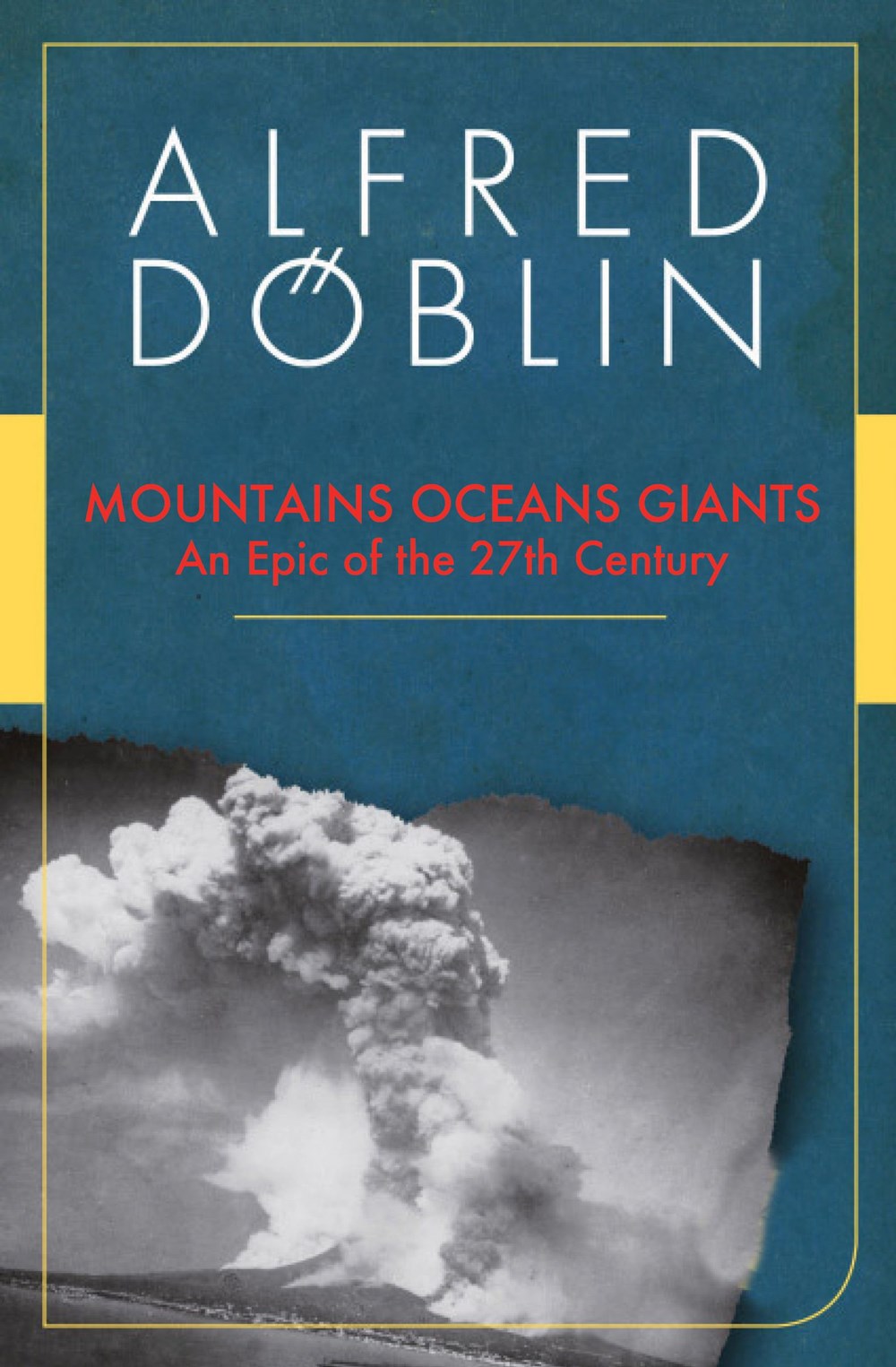 Mountains OceansGiants: An Epic of the 27th Century by Alfred Döblin, translated from the German by Chris Godwin (Galileo Publishers, June 15)
Mountains OceansGiants: An Epic of the 27th Century by Alfred Döblin, translated from the German by Chris Godwin (Galileo Publishers, June 15)
The 27th century: beleaguered elites decide to melt the Greenland icecap. Why? – to open up a new continent, for colonisation by the unruly masses. How? – by harvesting the primordial heat of the Earth from Iceland’s volcanoes. Nature fights back, and it all goes horribly wrong…
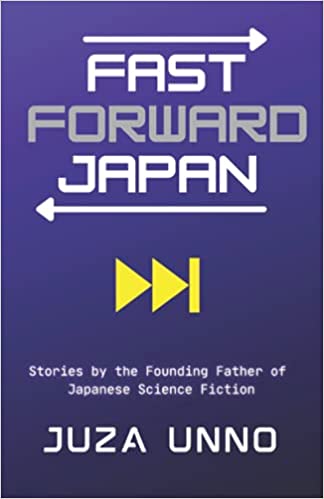 Fast Forward Japan: Stories by the Founding Father of Japanese Science Fiction by Juza Unno, translated from the Japanese by J. D. Wisgo (Arigatai Books, June 21)
Fast Forward Japan: Stories by the Founding Father of Japanese Science Fiction by Juza Unno, translated from the Japanese by J. D. Wisgo (Arigatai Books, June 21)
Beginning his writing career in 1928, Juza Unno took inspiration from Western authors like Jules Verne as well as his own knowledge of electric engineering to write fiction that integrated a broad spectrum of creative innovative ideas. His stories touch upon everything from facial reconstruction and gender reassignment surgery to video phones, cryogenics, multi-dimensional beings, and celestial body orbit adjustment (and, of course, robots). Because of this, Unno is sometimes referred to as the father of Japanese science fiction.
This collection contains some of Unno’s best short- and medium-length fiction, and is the first time his stories have been published in print media in English.
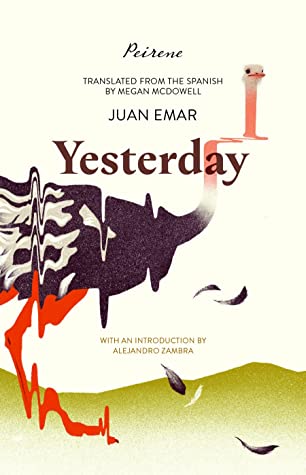 Yesterdayby Juan Emar, translated from the Spanish by Megan McDowell (Peirene Press, June 21)
Yesterdayby Juan Emar, translated from the Spanish by Megan McDowell (Peirene Press, June 21)
In San Agustín de Tango, you can never be sure what’s waiting around the corner. Over the course of a single day – the day before today – the hero of this novel and his adored wife embark on a journey through the absurd and the surreal, encountering a choir of monkeys and a carnivorous ostrich, travelling from the studio of an artist obsessed with the colour green to the waistcoat pocket of a pot-bellied man. All the while, the tolling of the bell in the city square pushes their whirlwind adventure towards its fateful conclusion…
JULY
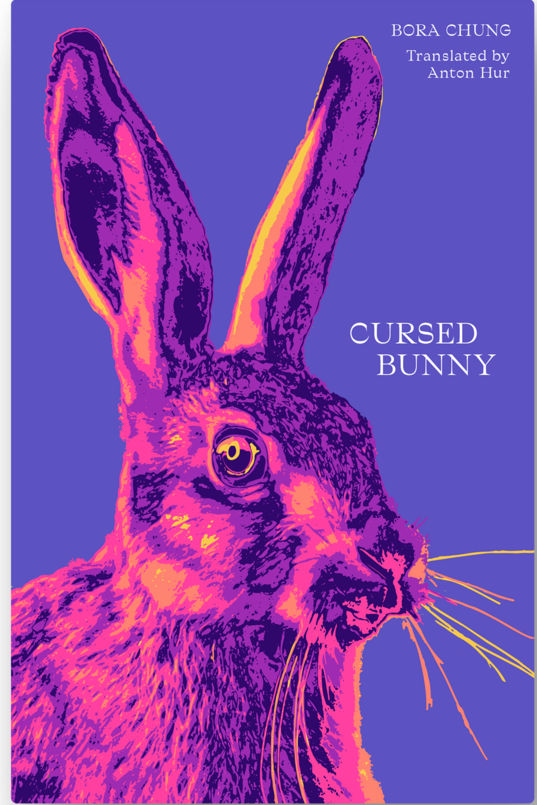 Cursed Bunny by Bora Chung, translated from the Korean by Anton Hur (Honford Star, July ?)
Cursed Bunny by Bora Chung, translated from the Korean by Anton Hur (Honford Star, July ?)
Cursed Bunny is a genre-defying collection of short stories by Korean author Bora Chung. Blurring the lines between magical realism, horror, and science-fiction, Chung uses elements of the fantastic and surreal to address the very real horrors and cruelties of patriarchy and capitalism in modern society.
Anton Hur’s translation skilfully captures the way Chung’s prose effortlessly glides from being terrifying to wryly humorous. Winner of a PEN/Heim Grant.
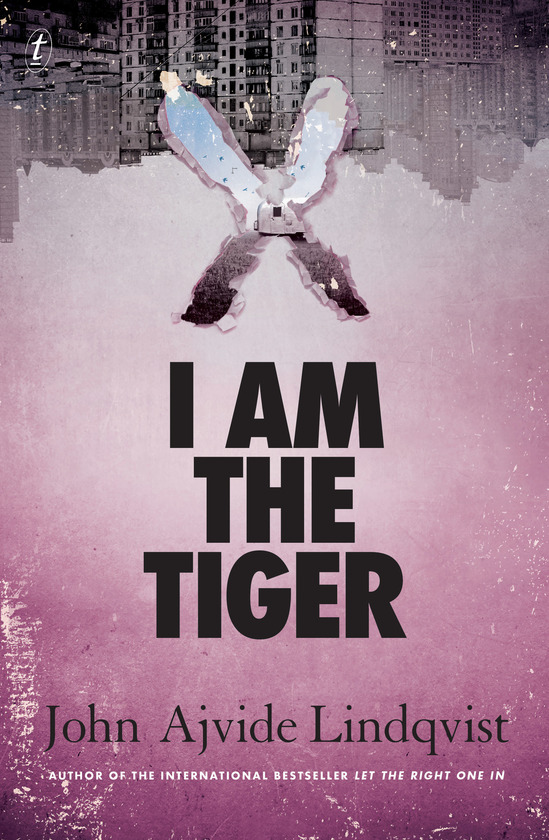 I Am the Tiger by John Ajvide Lindqvist, translated from the Swedish by Marlaine Delargy (Text Publishing, July 2)
I Am the Tiger by John Ajvide Lindqvist, translated from the Swedish by Marlaine Delargy (Text Publishing, July 2)
A suicide epidemic is haunting Sweden’s underworld, and journalist Tommy T is determined to unmask the shadowy figure, X, who seems to be behind it. Meanwhile, Tommy’s seventeen-year-old nephew, Linus, is slowly being drawn deeper into X’s drug-dealing operation. The closer Tommy gets to the truth, the more dangerous things seem. What is the strange and mysterious force stalking Stockholm’s streets?
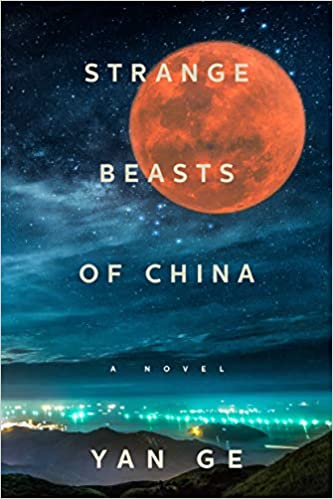 Strange Beasts of China by Yan Ge, translated from the Chinese by Jeremy Tiang (July 13)
Strange Beasts of China by Yan Ge, translated from the Chinese by Jeremy Tiang (July 13)
In the fictional Chinese city of Yong’an, an amateur cryptozoologist is commissioned to uncover the stories of its fabled beasts. These creatures live alongside humans in near-inconspicuousness—save their greenish skin, serrated earlobes, and strange birthmarks. Aided by her elusive former professor and his enigmatic assistant, our narrator sets off to document each beast, and is slowly drawn deeper into a mystery that threatens her very sense of self.
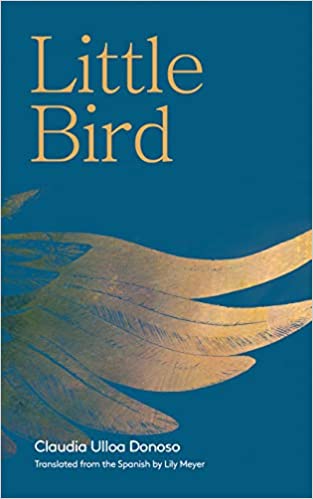 Little Bird by Claudia Ulloa Donoso, translated from the Spanish (Peru) by Lily Meyer (Deep Vellum, July 20).
Little Bird by Claudia Ulloa Donoso, translated from the Spanish (Peru) by Lily Meyer (Deep Vellum, July 20).
Blending narration and personal experience, the stories in Little Bird stretch reality, a sharp-shooting combination of George Saunders and Samanta Schweblin. Characters real and unreal, seductive, shape-changing, and baffling come together in smooth prose that leaves readers questioning their own truth.
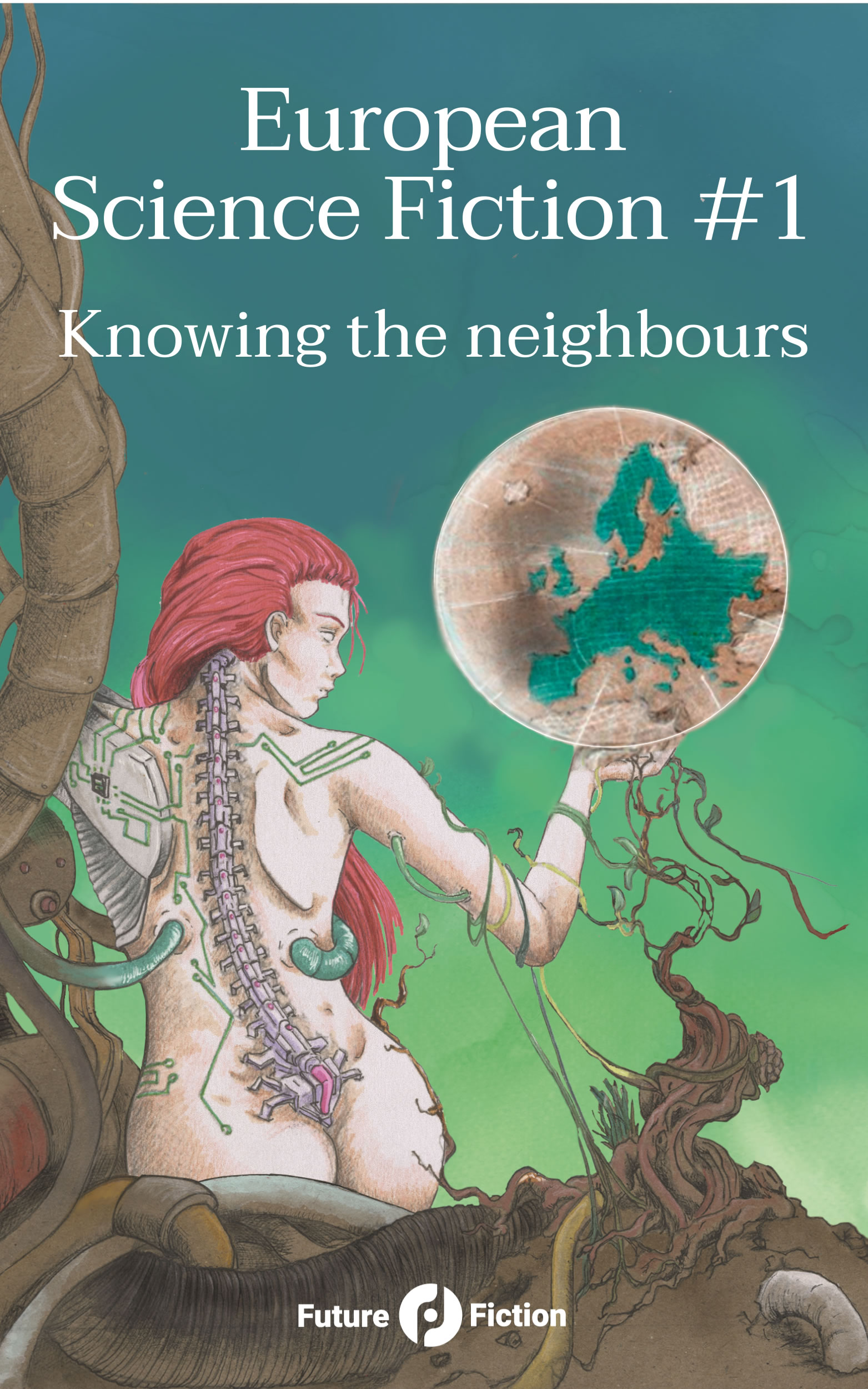 European Science Fiction #1: Knowing the Neighbors, ed. Francesco Verso (Future Fiction, July 24)
European Science Fiction #1: Knowing the Neighbors, ed. Francesco Verso (Future Fiction, July 24)
translated stories:
“Roseweed” by Vasso Christou (Greece), translated by Dimitra Nikolaidou and Vy Pseftakis
“Amber Queen” by Olivier Paquet (France), translated by Sheryl Curtis
“Planned Obsolescence” by Nina Horvath (Austria), translated by Sally McCorry
“The Keresztury TVirs” by Ivan Popov (Bulgaria), translated by V. Poleganov, I. Popov, K.N. Nenov
“Beautymark” by Linda De Santi (Italy), translated by Sally McCorry
“Petware” by Uwe Post (Germany), translated by Carlotta Codebò
“The Naming Tree” by J.S. Meresmaa (Finland), translated by Sally McCorry
“Lying Weather” by Krystyna Chodorowska (Poland), translated by Blanka Korolczuk and Sally McCorry
“Reaping Day” by Anna Jakobsson Lund (Sweden), translated by Clare Barnes
“Team Memory” by Carme Torras (Spain), translated by Sue Burke
AUGUST
SEPTEMBER
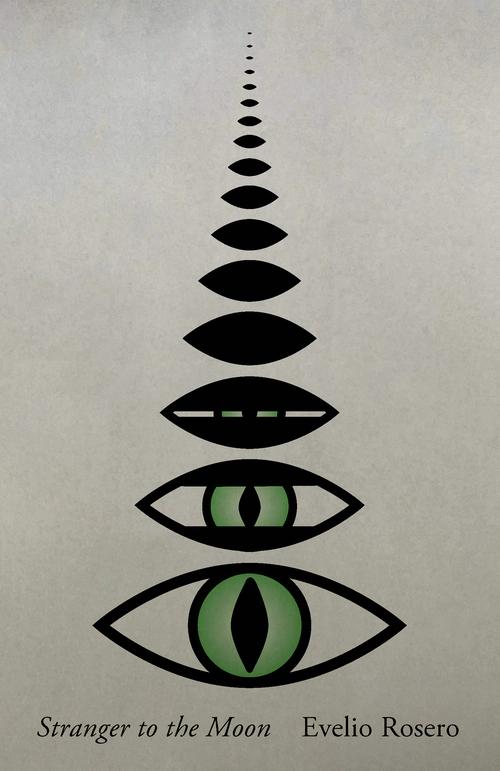 Stranger to the Moonby Evelio Rosero, translated from the Spanish by Victor Meadowcroft and Anne McLean (New Directions, September 7).
Stranger to the Moonby Evelio Rosero, translated from the Spanish by Victor Meadowcroft and Anne McLean (New Directions, September 7).
The renowned Colombian writer Evelio Rosero has never been one to shy away from the darker aspects of his nation’s history and society. His magnificent novel Stranger to the Moon portrays a world that seems to exist outside time and place but taps into the dark myths and collective subconscious of his country, with its harrowing inequality and violence. A parable of pointed social criticism, with naked humans imprisoned in a house in order to serve the needs of “the vicious clothed ones,” the novel describes what ensues when a single “naked one” privately rebels, risking his own death and that of his fellow prisoners. Each subsequent section of the book adds further layers to the ritualistic and bizarre social order inhabited by its characters. Insects and reptiles are trained as agents and spies against the naked ones, and only the most fortunate humans manage to reach old age by taking up strategic spots near the kitchens and grabbing for the fiercely contested food. Stranger to the Moon is a brave, powerful, and distinctive novel by a writer who arguably holds the strongest claim to the title of Colombia’s greatest living author.
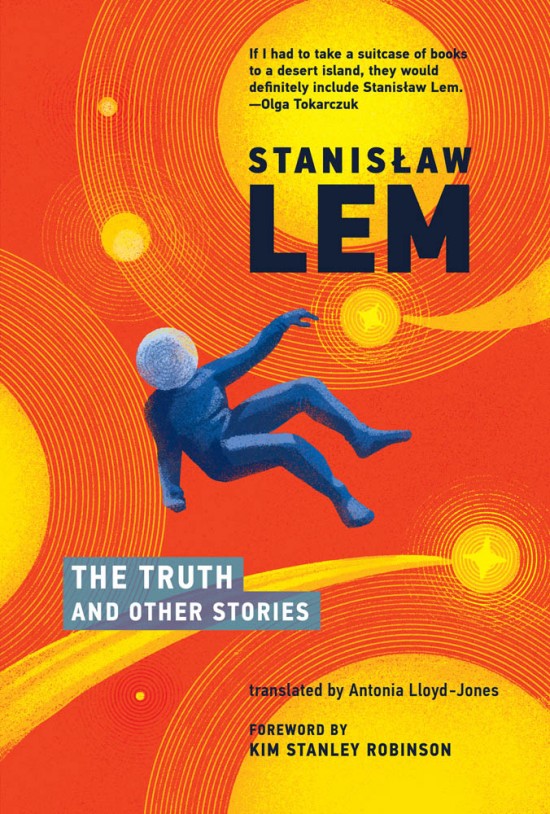 The Truth and Other Stories by Stanislaw Lem, translated from the Polish by Antonia Lloyd-Jones (MIT Press, September 14).
The Truth and Other Stories by Stanislaw Lem, translated from the Polish by Antonia Lloyd-Jones (MIT Press, September 14).
Of these twelve short stories by science fiction master Stanisław Lem, only three have previously appeared in English, making this the first “new” book of fiction by Lem since the late 1980s. The stories display the full range of Lem’s intense curiosity about scientific ideas as well as his sardonic approach to human nature, presenting as multifarious a collection of mad scientists as any reader could wish for. Many of these stories feature artificial intelligences or artificial life forms, long a Lem preoccupation; some feature quite insane theories of cosmology or evolution. All are thought-provoking and scathingly funny.
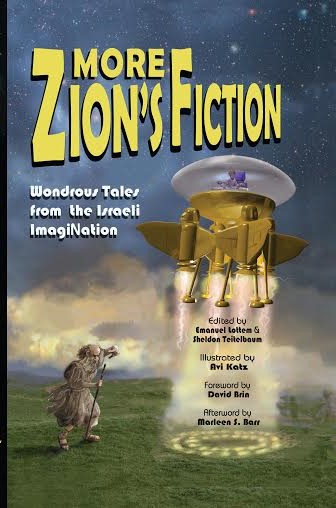 More Zion’s Fiction: Wondrous Tales from the Israeli ImagiNation, edited by Emmanuel Lottem and Sheldon Teitelbaum, translated from the Hebrew by Emmanuel Teitelbaum (September 15).
More Zion’s Fiction: Wondrous Tales from the Israeli ImagiNation, edited by Emmanuel Lottem and Sheldon Teitelbaum, translated from the Hebrew by Emmanuel Teitelbaum (September 15).
(translated stories):
“Schrödinger’s Gorgon” by Keren Landsman, tr. Emanuel Lottem
“Five Four Three Two One” by Hila Benyovits-Hoffman, tr. Rehavia Berman
“Dragon Control” by Rami Shalheveth, tr. Rehavia Berman
“Above the Clouds, Above the Mountains, Above the Sky” by Pesach (Pavel) Amnuel, tr. David Reid
“Me and Nana Go Shopping” by Hamutal Levin, tr. Emanuel Lottem
“Life in a Movie” by Yivsam Asgad, tr. Emanuel Lottem
“Dress” by Gail Hareven, tr. Adriana X. Jacobs
“Composting” by Galit Dahan Carlibach, tr. Ronnie Hope
“Set in Stone” by Yael Furman, tr. Sarit Shalhevet
“Askuni-Askuni” by Dafna Feldman, tr. Emanuel Lottem
“Latte, To Go” by Rotem Baruchin, tr. Rehavia Berman
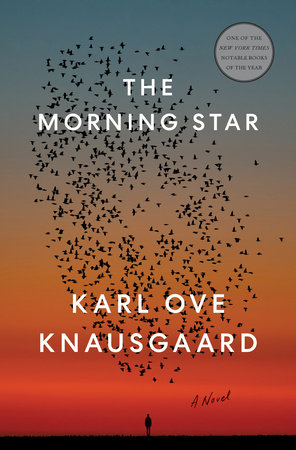 The Morning Star by Karl Ove Knausgaard, translated from the Norwegian by Martin Aitken (Penguin Press, September 28)
The Morning Star by Karl Ove Knausgaard, translated from the Norwegian by Martin Aitken (Penguin Press, September 28)
A major new work from the author of the renowned My Struggle series, The Morning Star is an astonishing, ambitious, and rich novel about what we don’t understand, and our attempts to make sense of our world nonetheless. One long night in August, Arne and Tove are staying with their children in their summer house in southern Norway. Their friend Egil has his own place nearby. Kathrine, a priest, is flying home from a Bible seminar, questioning her marriage. Journalist Jostein is out drinking for the night, while his wife, Turid, a nurse at a psychiatric care unit, is on a night shift when one of her patients escapes. Above them all, a huge star suddenly appears blazing in the sky. It brings with it a mysterious sense of foreboding. Strange things start to happen as nine lives come together under the star. Hundreds of crabs amass on the road as Arne drives at night; Jostein receives a call about a death metal band found brutally murdered in a Satanic ritual; Kathrine conducts a funeral service for a man she met at the airport – but is he actually dead? The Morning Star is about life in all its mundanity and drama, the strangeness that permeates our world, and the darkness in us all. Karl Ove Knausgaard’s astonishing new novel, his first after the My Struggle cycle, goes to the utmost limits of freedom and chaos, to what happens when forces beyond our comprehension are unleashed and the realms of the living and the dead collide.
OCTOBER
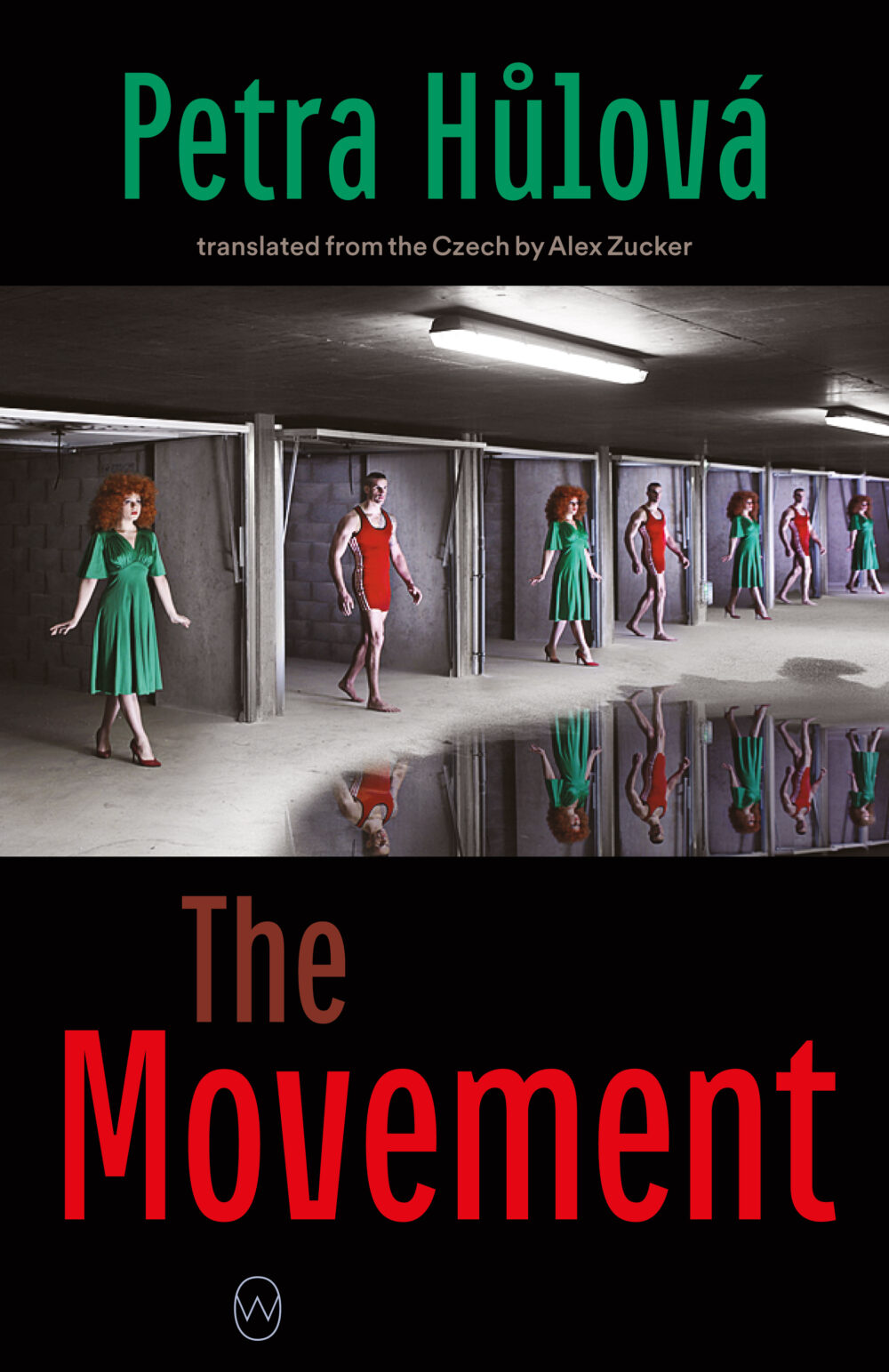 The Movement by Petra Hůlová, translated from the Czech by Alex Zucker (World Editions, October 5)
The Movement by Petra Hůlová, translated from the Czech by Alex Zucker (World Editions, October 5)
The Movement’s founding ideology emphasizes that women should be valued for their inner qualities, and not for their physical attributes. Men have been forbidden to be attracted to women on the basis of their bodies. While some continue unreformed, many submit—or are sent by wives and daughters—to the Institute for internment and reeducation. Our narrator, an unapologetic guard at one of these reeducation facilities, describes how the Movement started, her own personal journey, and what happens when a program fails. She is convinced the Movement is nearing its final victory—a time when everybody will fall in line with its ideals. Outspoken, ambiguous, and terrifying, this socio-critical satire of our sexual norms sets the reader firmly outside of their comfort zone.
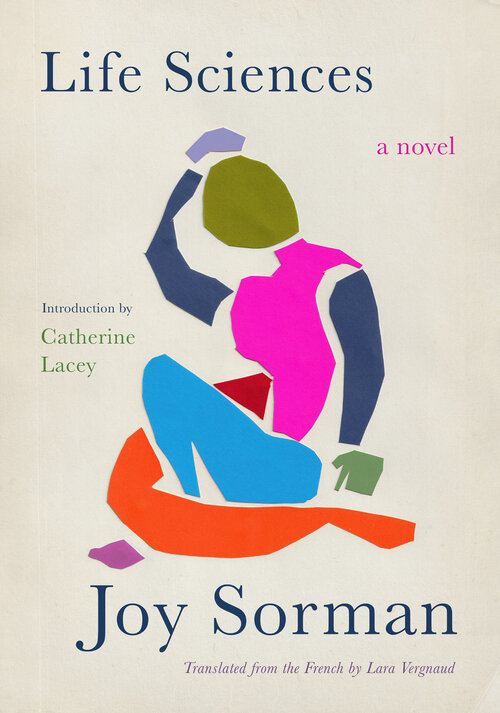 Life Sciences by Joy Sorman, translated from the French by Laura Vergnaud (Restless Books, October 12)
Life Sciences by Joy Sorman, translated from the French by Laura Vergnaud (Restless Books, October 12)
Ninon Moise is cursed. So is her mother Esther, as was every eldest female member of her family going back to the Middle Ages. Each generation is marked by a uniquely obscure disease, illness, or ailment—one of her ancestors was patient zero in the sixteenth-century dancing plague of Strasbourg, while Esther has a degenerative eye disease. Ninon grows up comforted and fascinated by the recitation of these bizarre, inexplicable medical mysteries, forewarned that something will happen to her, yet entirely unprepared for how it will alter her life. Her own entry into this litany of maladies appears one morning in the form of an excruciating burning sensation on her skin, from her wrists to her shoulders.
Embarking on a dizzying and frustrating cycle of doctors, specialists, procedures, needles, scans, and therapists, seventeen-year-old Ninon becomes consumed by her need to receive a diagnosis and find a cure for her ailment. She seeks to break the curse and reclaim her body by any means necessary, through increasing isolation and failed treatment after failed treatment, even as her life falls apart. A provocative and empathic questioning of illness, remedy, transmission, and health, Life Sciences poignantly questions our reliance upon science, despite its limitations, to provide all the answers.
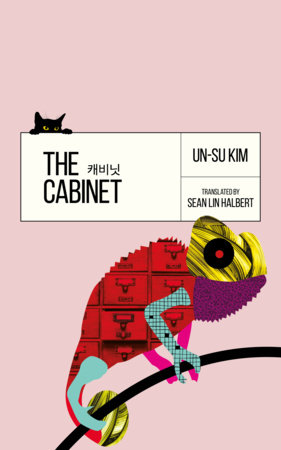 The Cabinet by Un-su Kim, translated from the Korean by Sean Lin Halbert (Angry Robot, October 12)
The Cabinet by Un-su Kim, translated from the Korean by Sean Lin Halbert (Angry Robot, October 12)
Cabinet 13 looks exactly like any normal filing cabinet…Except this cabinet is filled with files on the ‘symptomers’, humans whose strange abilities and bizarre experiences might just mark the emergence of a new species. But to Mr Kong, the harried office worker whose job it is to look after the cabinet, the symptomers are a headache; especially the one who won’t stop calling every day, asking to be turned into a cat.
A richly funny and fantastical novel about the strangeness at the heart of even the most everyday lives, from one of South Korea’s most acclaimed novelists.
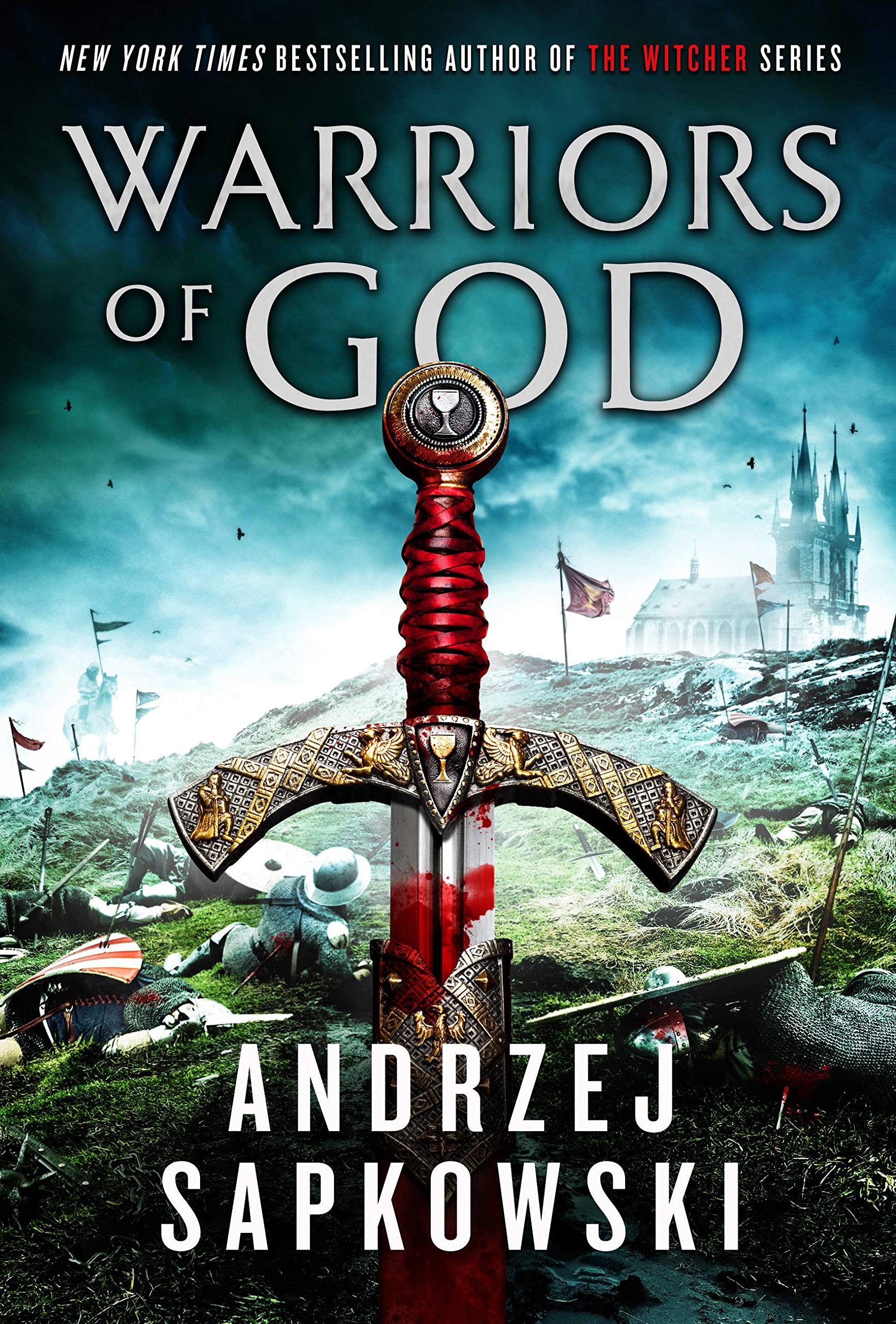 Warriors of God (Hussite Trilogy #2) by Andrzej Sapkowski, translated from the Polish by David French (Orbit, October 19)
Warriors of God (Hussite Trilogy #2) by Andrzej Sapkowski, translated from the Polish by David French (Orbit, October 19)
When the Hussite leaders entrust Reynevan with a dangerous secret mission, he is forced to come out of hiding in Bohmeia and depart for Silesia. At the same time, he strives to avenge the death of his brother and discover the whereabouts of his beloved. Once again pursued by multiple enemies, he must contend with danger on every front. Full of gripping action replete with twists and mysteries, seasoned with magic and Sapkowski’s ever-present wit, fans of the Witcher will appreciate this rich historical epic set during the Hussite Wars.
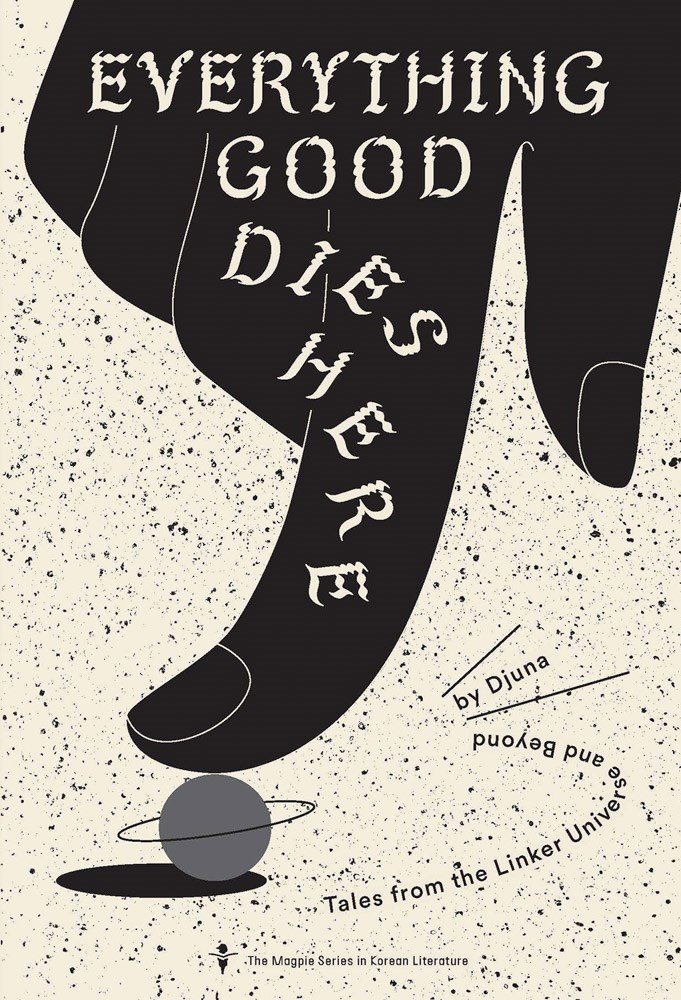 Everything Good Dies Here: Tales from the Linker Universe and Beyond by Djuna, translated from the Korean by Adrian Thieret (Kaya Press, October 26)
Everything Good Dies Here: Tales from the Linker Universe and Beyond by Djuna, translated from the Korean by Adrian Thieret (Kaya Press, October 26)
The stories brought together in this collection introduce for the first time in English the dazzling speculative imaginings of Djuna, one of South Korea’s most provocative SF writers. Whether describing a future society light years away or satirizing Confucian patriarchy, these stories evoke a universe at once familiar and clearly fantastical. Also collected here for the first time are all six stories set in the Linker Universe, where a mutating virus sends human beings reeling through the galaxy into a dizzying array of fracturing realities. Blending influences ranging from genre fiction (zombie, vampire, SF, you name it) to golden-age cinema to Conrad’s Heart of Darkness, Djuna’s stories together form a brilliantly intertextual, mordantly funny critique of the human condition as it evolves into less and more than what it once was.
NOVEMBER
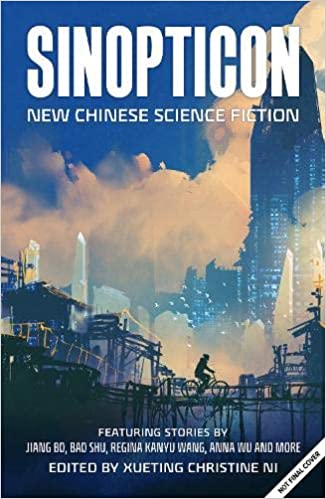 Sinopticon: New Chinese Science Fiction, edited and translated from the Chinese by Xueting Christine Ni (Solaris, November 9)
Sinopticon: New Chinese Science Fiction, edited and translated from the Chinese by Xueting Christine Ni (Solaris, November 9)
This celebration of Chinese Science Fiction–thirteen stories translated for the first time into English–represents a unique exploration of the nation’s speculative fiction from the late 20th Century onwards, curated and translated by critically acclaimed writer and essayist Xueting Christine Ni.
From the renowned Jiang Bo’s ‘Starship: Library’ to Regina Kanyu Wang’s ‘The Tide of Moon City’, and Anna Wu’s ‘Meisje met de Parel’, this is a collection for all fans of great fiction.
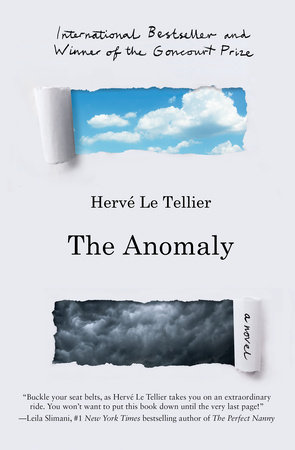 The Anomaly by Hervé Le Tellier, translated from the French by Adriana Hunter (Coach House Press, November 23)
The Anomaly by Hervé Le Tellier, translated from the French by Adriana Hunter (Coach House Press, November 23)
Winner of the Goncourt Prize and now an international phenomenon, this dizzying, whip-smart novel blends crime, fantasy, sci-fi, and thriller as it plumbs the mysteries surrounding a Paris-New York flight.
DECEMBER
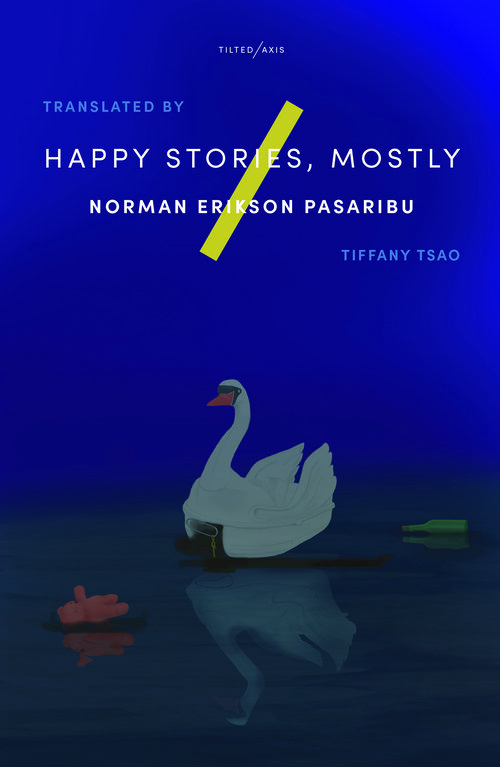 Happy Stories, Mostly by Norman Erikson Pasaribu, translated from the Indonesian by Tiffany Tsao (Tilted Axis, December 2)
Happy Stories, Mostly by Norman Erikson Pasaribu, translated from the Indonesian by Tiffany Tsao (Tilted Axis, December 2)
A blend of science fiction, absurdism and alternative-historical realism, Happy Stories, Mostly is a powerful puff of fresh air, aimed at destabilising the heteronormative world and exposing its underlying absences.

